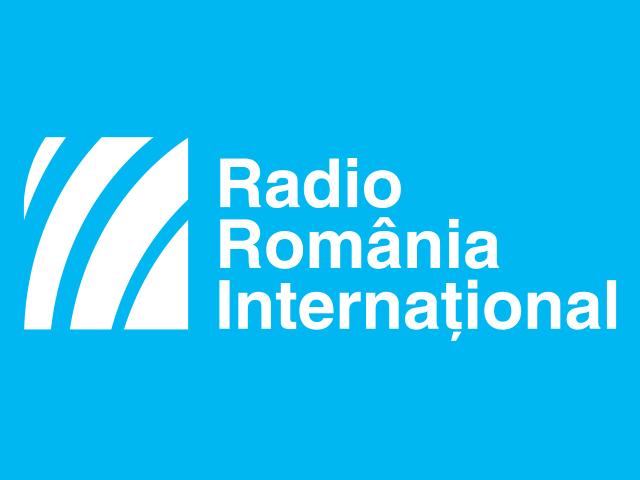Radio Romania International

Indian
and Oriental studies have had a number of remarkable representatives in Romania
as well. The first was Mircea Eliade, born in 1907, a reputed writer and
historian of religions, who had a vast scientific and didactic career in the
West. The following generation of experts in Indian studies included Sergiu
Al-George, Anton Zigmund-Cerbu, Eliza Zigmund-Cerbu, Marcel Leibovici and Arion
Roșu, the four latter being members of the Bucharest-based Jewish community.
Arion
Roșu was born February 1, 1924 in Bucharest, and passed away on April 4, 2007
in Versailles, France, at the age of 83. He studied classical philology at
University of Bucharest, and specialized in Indian studies, in Ayurveda and the
history of classical Indian medicine. In 1964, he moved to France, where he
continued his studies at La Sorbonne and defended his doctoral thesis about the
psychological concepts in Indian medical literature. He published extensive
scientific papers and volumes about India and classical Indian culture.
The
Institute for the History of Religions of the Romanian Academy paid homage to
Arion Roșu by naming a study after him. Indian specialist Eugen Ciurtin, the
director of the Institute, knew Arion Roșu, and was actually his student.
Ciurtin says Roșu was an accomplished scholar, his works being representative
not just for Romania.
Arion
Roșu is not a parochial figure, representing a single place, he was a European
scholar, to say the least. For instance, Professor David Gordon-White, who
teaches history of religions at University of California, studied with two
world authors who guided his career. One was published for the first time in
the USA, a certain Mircea Eliade, whereas the other was first published in
Europe, Arion Roșu. The fact that they happen to be Romanian is just our manner
of understanding the evolution of Indian studies, of humanistic culture, at the
end of the 20th century. Arion Roșu is a personality whose works
displayed extraordinary durability. He is the only Romanian-born specialist in
Indian and Oriental studies who, at the time of his death, was given the unique
honor of having an obituary signed by Pierre-SylvainFilliozat in Journal Asiatique,
the oldest periodical of Oriental studies in Europe, which has been published
in the last two centuries without interruption.
Ayurveda
or Indian classical medicine has always fascinated people across time and
space. It also enthralled Arion Roșu. Eugen Ciurtin told us more:
Arion
Roșu
distinguished himself as a historian of religions, particularly of Indian
studies, with a special focus on classical Sanscrit medical literature. Why is
this so important? Because of all the ancient cultures, only a few have an
original medical system. In other words, there are only a few civilizations,
including those of Egypt, China, India or Greece, that first looked at the
human body with all its wonders and diseases. Devoting yourself to classical
Ayurveda meant recosntructing the science and philosophy of ancicent Indian
culture.
All
Romanian Orientalists were influenced by Mircea Eliade, who was a beacon for
young Romanians who wanted to discover the secrets of India. Among them were a
few Jewish students who were forced to explain their Fascist options to their
teacher. We asked Eugen Ciurtin how Arion Roșu reacted to Eliade's biography:
I
talked to Arion Roșu on a number of ocassions in Versailles, where he settled after turning 70, and I
took it upon myself to tell him that in 1996 the extraordinary and painful
Journal of Mihail Sebastian had been published. Then, he would select and cut
out articles from major French publications and had them sent to me. The
articles discussed the rightist formation of Mircea Eliade, who had been
influenced by Monsignor Vladimir Ghyka, who helped him convert to Catholicism
in the wake of the Romanian communist authorities' anti-Jewish drive. He found
it hard to understand how someone so gifted and kind as Mircea Eliade would end
up a captive of European far-right ideology for such a long time. There are
documents in which Arion Roșu condemns this situation. But because he felt his
destiny was bound to Eliade's, because he always admired his amazing intellect
that helped him conquer the whole planet, Arion Roșu wanted to be fair and share the science. At
the same time, he would be very harsh when some of his colleagues failed to
grasp their predicament.
Arion
Roșu is an
iconic representative of Indian studies at global level, whose emblematic
contributions are used in specialised academic circles. And this makes him a
product of world literature. (VP)
Related Keywords
United States , India , Egypt , China , California , Bucharest , Bucuresti , Romania , France , Greece , Romanians , Romanian , French , Anton Zigmund Cerbu , Eliza Zigmund Cerbu , Arion Ro , David Gordon White , Mihail Sebastian , Vladimir Ghyka , Mircea Eliade , Marcel Leibovici , University Of California , University Of Bucharest , Bucharest Based Jewish , Romanian Academy , Eugen Ciurtin , Professor David Gordon White , Romanian Orientalists , Monsignor Vladimir Ghyka ,
comparemela.com © 2020. All Rights Reserved.